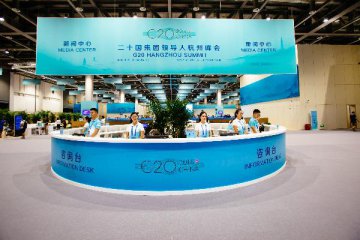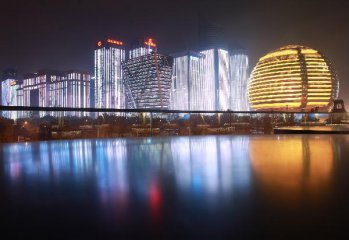
The Group of 20 summit opened Sunday in China's eastern city of Hangzhou amid multiple risks and challenges, aiming to find a therapy that can bring the world economy back to a healthy growth trajectory.
The therapy will be an integrative approach to address both the symptoms and root causes, and propel the world economy onto a path of robust, sustainable, balanced and inclusive growth, said Chinese President Xi Jinping when addressing the opening ceremony of the summit.
Xi said the summit would focus on topics essential to the world economy, including macro-economic policy coordination, innovation-driven growth, more efficient world governance, robust trade and investment, and inclusive and interconnected development.
There are high hopes for this year's summit, as it seeks a transformation from crisis response, which focused on short-term policies, to one of long-term governance, which shapes medium- to long-term policies.
With the theme of "Toward an Innovative, Invigorated, Interconnected and Inclusive World Economy," the summit has put the issue of development front and center of the global macro policy framework for the first time.
It is also the first time that the G20 has an action plan for implementing the 2030 Agenda for Sustainable Development, and carries out cooperation to support the industrialization of African countries and least developed countries.
With two-thirds of the world's population, G20 contributes about 90 percent of the world's total gross domestic product and 80 percent of the world's trade volume.
Wang Wen, executive dean of the Chongyang Institute for Financial Studies with the Renmin University of China, took the summit as "a landmark event in the history of China's diplomacy that reveals the growing influence and soft power of the country."
The event also brought the world a chance to understand China's practices and innovations in pursuing sustainable development, said researcher Jia Jinjing, Wang's colleague.




















Latest comments